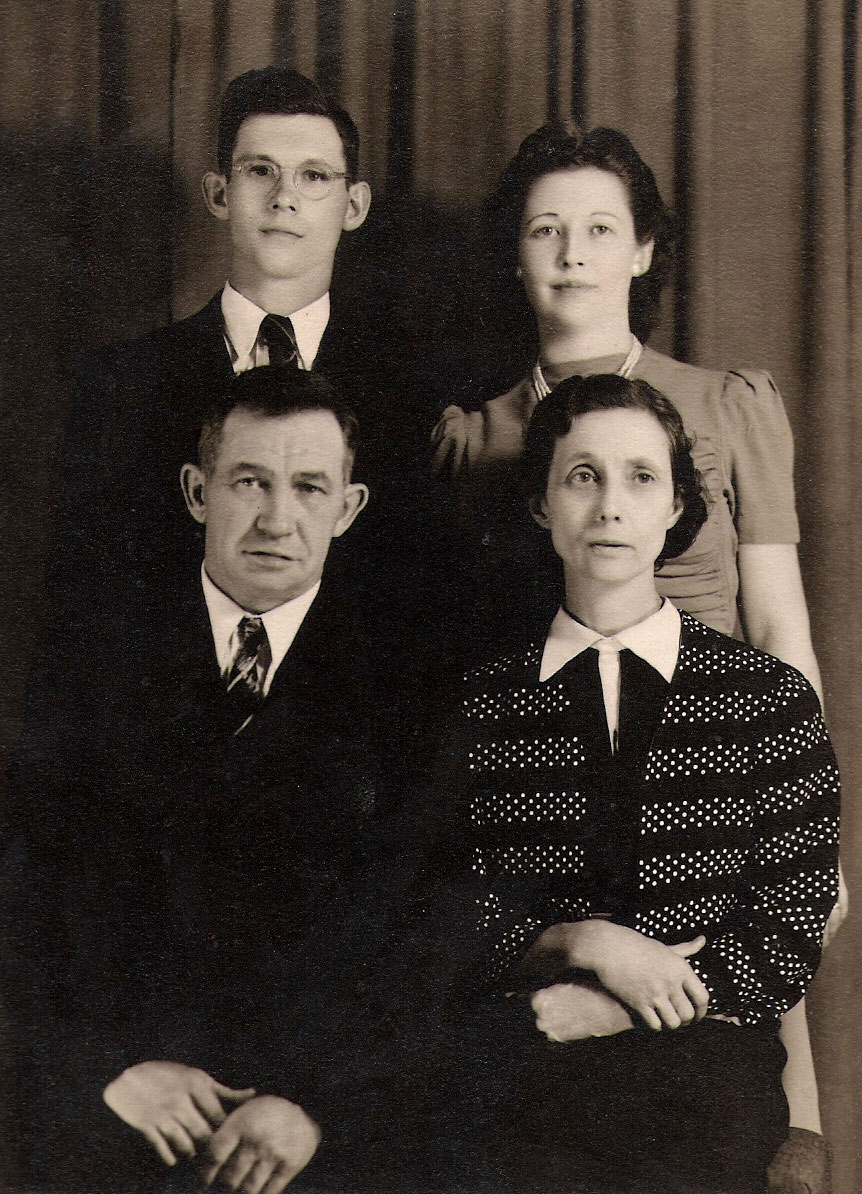I wasn’t really sure who to pick next. I didn’t want to pick an ancestor I always talk about, so I opened up RootsMagic and closed my eyes and clicked a random person from the pedigree tree. I picked Frederick MORAN.

Frederick MORAN is my wife’s paternal great-grandfather. He was born 21 February 1891 in the small Richwood Township in Richland County, Wisconsin to Charles & Emma (DIETER) MORAN. According to early census records, he was a farm laborer until his marriage on 31 October 1915 (Halloween and my daughter’s birthday) to Norma POWELL. For some reason, this line seemed to like marrying in Iowa as they were married in McGregor, Clayton, Iowa and my wife’s paternal grandparents also married in Iowa. They had two children, my wife’s grandfather, Keith, and his sister, Vivian.
He had many occupations over the next few decades including Farmer, Lime Grinder, and Janitor at the public school. He passed away on 22 March 1949 in Boscobel, Grant County in southwestern Wisconsin and is buried there with his wife.
Much of my wife’s paternal ancestors, including the MORAN family, settled in the southwestern area of Wisconsin, which is full of hills and mines, though none of them were miners as far as I can tell. According to the Wisconsin Historical Society, a lot of people were drawn to this area in the 1800s due to it’s potential for mining:
Although southwestern Wisconsin is best known today for its rich farmlands, place names such as Mineral Point and New Diggings evoke an earlier time when local mines produced much of the nation’s lead. In the early nineteenth century, Wisconsin lead mining was more promising and attractive to potential settlers than either the fur trade or farming. Its potentially quick rewards lured a steady stream of settlers up the Mississippi River and into Grant, Crawford, Iowa, and Lafayette counties in the early nineteenth century. By 1829, more than 4,000 miners worked in southwestern Wisconsin, producing 13 million pounds of lead a year.
This post is 2 of 52 in the “52 Ancestors in 52 Weeks” Challenge” begun by Amy Johnson Crow.

